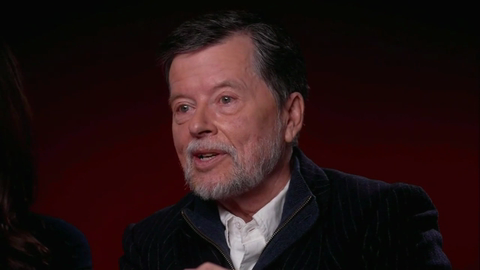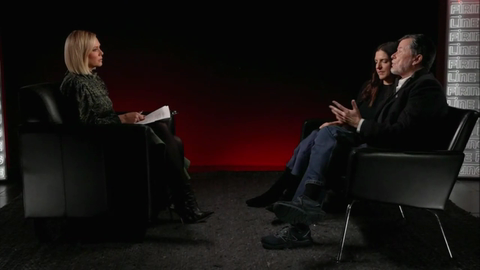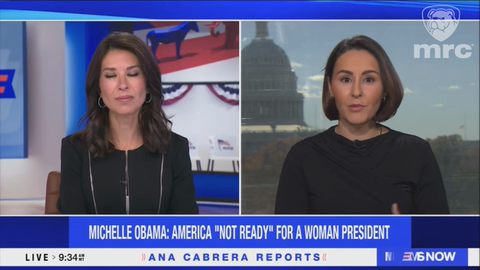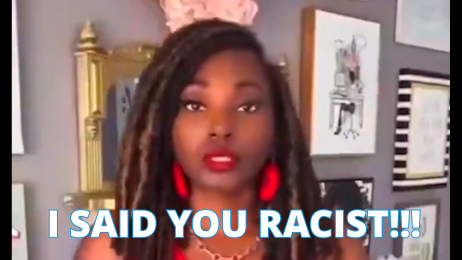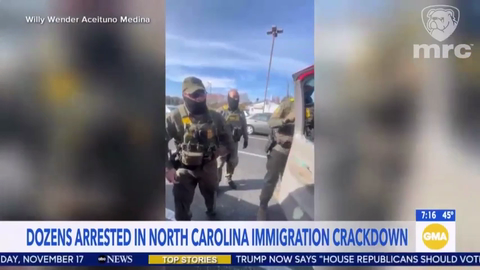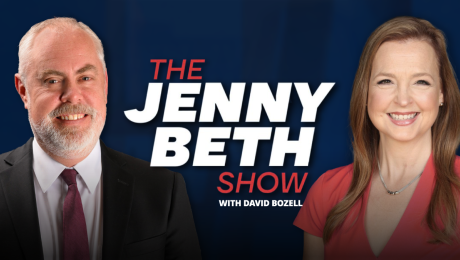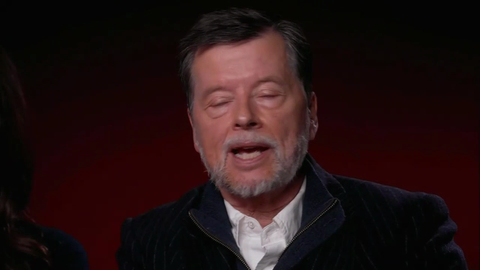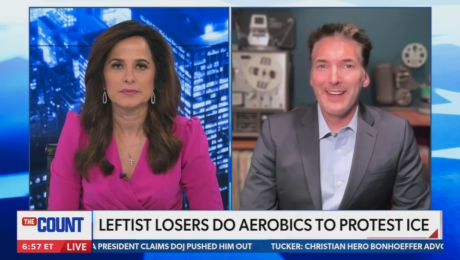Cross posted to the MRC's NewsBusters blog
On Saturday's The Weekend: Primetime, MSNOW host Ayman Mohyeldin derided police actions to protect the ICE facility outside Chicago as "the worst of America" as the show gave a forum to a liberal clergyman to excoriate ICE's treatment of illegal aliens. And MSNOW contributor Eddie Glaude went on to compare arresting illegal aliens to capturing fugitive slaves in the 1850s.
Reverend Michael Woolf of the Lake Street Church of Evanston was given much of the segment to discuss his recent experience of being arrested by police officers outside the ICE facility in Broadview, Illinois, as he and other protesters tried to move too close to the facility. He repeatedly made provocative accusations against immigration enforcement agents during his ramblings, accusing them "kidnapping," of running a "concentration camp," or of being part of "tyranny."
He asserted:
We know what's happening at that facility is pretty much tantamount to torture. It's denial of food, it's unsanitary conditions, and the people who are detained there are detained without any spiritual care whatsoever. So we were there to raise our voices as moral actors and sort of say that we want the folks there to be released, we want the facility to be closed down, and, of course, we want to be able to pray with our neighbors who have been kidnapped from our communities.
A bit later, he recalled:
I always try to talk to police officers. I try to remind them they have a choice -- that they are protecting what amounts to a concentration camp behind them and they're allowing it to happen. But they have a choice on how they're going to operate with that.
Asking a followup question, co-host Ayman Mohyeldin posed:
So, Professor, when you kind of look at this moment, you have both the best and worst of America represented, right? You have people who are standing up for what they believe is right -- trying to convince people to take the moral -- the correct moral action, but, at the same time, you're seeing, as the reverend was saying, the use of violence which is sometimes a deliberate tactic by the state to invoke a certain imagery that the state has a monopoly on power -- absolute use of power -- and can do so against even holy men in our society.
Later on, after Reverend Woolf repeated his accusation of "kidnapping" by immigration agents, Glaude made his slavery comparison:
WOOLF: We are facing an intense crisis of morality, and it demands people of conscience to be able to say something about it when you have folks coming into communities and kidnapping our neighbors, when you have people who are -- operate with absolute impunity, when you have an authoritarianism that is on the rise, and when you're dealing with tyranny, it's an emergency. And it demands people in all aspects of society and I think faith leaders, too.
EDDIE GLAUDE, MSNBC CONTRIBUTOR: Just think about this historic moment. The Fugitive Slave Act, 1850 -- people, slave catchers coming into communities, snatching people, and people have to make a choice. This is not new. This is not.
Transcript follows:
MSNOW's The Weekend: Primetime
November 16, 2025
8:18 p.m. Eastern
REVEREND MICHAEL WOOLF, LAKE STREET CHURCH OF EVANSTON: We know what's happening at that facility is pretty much tantamount to torture. It's denial of food, it's unsanitary conditions, and the people who are detained there are detained without any spiritual care whatsoever. So we were there to raise our voices as moral actors and sort of say that we want the folks there to be released, we want the facility to be closed down, and, of course, we want to be able to pray with our neighbors who have been kidnapped from our communities.
And so a bunch of faith leaders and I -- we went out into the streets to make those demands known, and we were immediately met with violence which, unfortunately -- as you were talking about -- is an occurrence that's been happening rather often down at Broadview.
CATHERINE RAMPELL: It looked -- it looked from the video like you were pointed out by some law enforcement officer and then dragged out. How did they identify you? Why do you think they came after you?
WOOLF I'm loud and I'm tall and I -- I --
RAMPELL: Wearing a collar?
WOOLF: And wearing a collar, and I'm happy to say exactly what I think, and when I'm talking to police officers -- I always try to talk to police officers. I try to remind them they have a choice -- that they are protecting what amounts to a concentration camp behind them and they're allowing it to happen. But they have a choice on how they're going to operate with that.
And I always talk to them, and I always talk about that choice. I was also telling them that we're peaceably assembled, and we absolutely intend to do absolutely no harm. And so eventually there was a lull in the action, and one of the commanders pointed at me and he said, "He's going." And so indeed I was going at that point, and there's really nothing you can do when that happens.
ELISE JORDAN: How did the officers respond when you tried to minister to them in that way?
WOOLF: You know, I've seen and sometimes made some police officers cry before when you talk about the children who are abducted. Police officers are human beings. I don't agree with some of the tactics that are used at Broadview. I don't agree with them protecting ICE or protecting this facility, but they're human beings. They are capable of conversion and change, and that is really important to note. So, yeah, there's been police officers who have cried when they're being preached to or when they're being talked to. They're moral actors, too. They have choices to make, and I think it's really important to know that.
AYMAN MOHYELDIN: So, Professor, when you kind of look at this moment, you have both the best and worst of America represented, right? You have people who are standing up for what they believe is right -- trying to convince people to take the moral -- the correct moral action, but, at the same time, you're seeing, as the reverend was saying, the use of violence which is sometimes a deliberate tactic by the state to invoke a certain imagery that the state has a monopoly on power -- absolute use of power -- and can do so against even holy men in our society.
(...)
WOOLF: We are facing an intense crisis of morality, and it demands people of conscience to be able to say something about it when you have folks coming into communities and kidnapping our neighbors, when you have people who are -- operate with absolute impunity, when you have an authoritarianism that is on the rise, and when you're dealing with tyranny, it's an emergency. And it demands people in all aspects of society and I think faith leaders, too.
EDDIE GLAUDE, MSNBC CONTRIBUTOR: Just think about this historic moment. The Fugitive Slave Act, 1850 -- people, slave catchers coming into communities, snatching people, and people have to make a choice. This is not new. This is not.
